Thomas Cecil Hook Pearson was educated at Charterhouse School, and granted a commission into the Rifle Brigade on 30 August 1934.
He was serving in the Middle East at the outbreak of the Second World War and Mentioned in Despatches in 1940. He won his first Distinguished Service Order for actions from 6 to 8 February 1941, when an Advance Guard Company and an Anti-Tank Gun section of the 2nd Bn Rifle Brigade commanded by Pearson successfully drove the enemy from positions next to the Benghazi-Agedabia Road, in Libya, and fought off repeated counterattacks during the following 48 hours.
Subsequently his postings included three staff appointments, latterly as a Deputy Assistant Quarter Master General (DAQMG) at a divisional headquarters, prior to his promotion to Commanding Officer of 2nd Bn Rifle Brigade (1942-43). He won a second DSO for his leadership of the battalion in May 1943 and his contribution to the capture of a large number of prisoners at Gombalia, in Tunisia.
From November 1943 until June 1944 he held a series of staff posts until his appointment as Deputy Commander of 2nd Independent Parachute Brigade Group. In the six months that he held this post he took temporary command of the brigade on two occasions.
Following his appointment as Deputy Commander of 1st Airlanding Brigade in January 1945, he was posted in June 1945 as General Staff Officer Grade 1 (GSO 1) at 1st Airborne Division, performing detailed liaison with Norwegian authorities during Operation Doomsday. While based in Norway, he met Aud Skjelkuale. They later married Thomas in Oslo in 1947.
Pearson was appointed as Commanding Officer of the 1st Parachute Battalion in November 1945 during its deployment to Palestine with 6th Airborne Division and then Commanding Officer of 7th (Light Infantry) Parachute Battalion in 1947.
Further staff appointments followed as GSO 1, at the War Office (June 1947 – December 1949), Malaya Headquarters (October 1950 to November 1951) and Headquarters Far East Land Forces (November 1951 to July 1953) where he was awarded an OBE.
In 1953 he became an Instructor at the Joint Services Staff College, but returned to the airborne fold as Commander of 45th Parachute Brigade from 1955 until its disbandment in 1956.
He commanded 16th Independent Parachute Brigade during its deployment to Jordan in 1958, following an appeal for assistance from King Hussein, and was subsequently awarded the CBE.
Pearson was appointed Chief of Staff to the Director of Operations in Cyprus in 1960 and then Head of the British Military Mission to the Soviet Zone of Germany (1960-61).
He was made General Officer Commanding 1st Division in 1961 and Chief of Staff for Northern Army Group in 1963.
Further postings followed as Commander Far East Land Forces in 1967 and Military Secretary at the Ministry of Defence in 1969.
General Pearson’s final appointment was as Commander-in-Chief, Allied Forces Northern Europe in 1972, prior to his retirement from the Army in 1974. This was a particularly appropriate and happy appointment as he and his wife were based in Oslo, where they had first met.





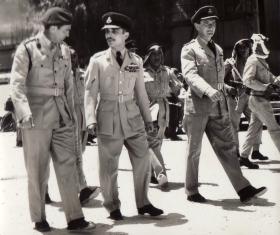
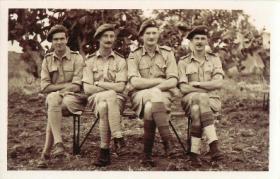
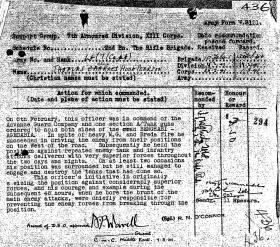
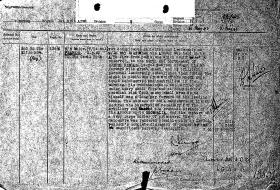
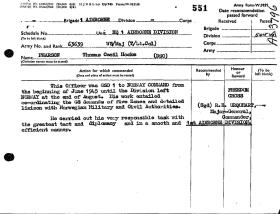
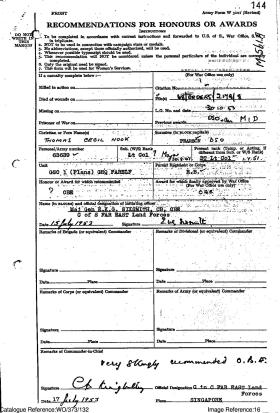
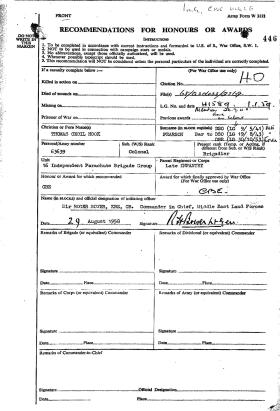
Latest Comments
There are currently no comments for this content.
Add Comment
In order to add comments you must be registered with ParaData.
If you are currently a ParaData member please login.
If you are not currently a ParaData member but wish to get involved please register.